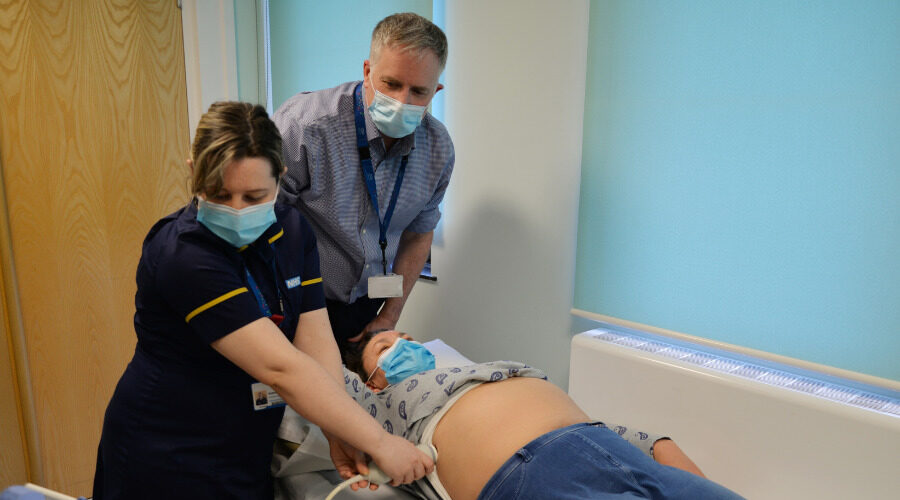
Spotlight
How clinical research is helping to detect liver disease in patients
This coming Saturday (20 May) our 100-strong team of colleagues involved in research will be celebrating International Clinical Trials Day.
The idea for the special day came about in 2005, as a way to commemorate the day when Dr James Lind started the first ever clinical trial – 276 years ago, on 20 May 1747.
While working as a surgeon on a ship, Dr Lind became concerned at the high levels of scurvy among the sailors, so he set about finding the best possible cure for the disease. This set the foundation for research as we know it today.
At Somerset FT, we have an incredible 5,489 patients involved in ongoing clinical trials, spread over 217 live studies.
One of these exciting studies is led by our consultant gastroenterologist, Tim Jobson, who has formed a partnership with an IT expert to develop a system that predicts whether a patient is likely to have liver disease.
Liver disease is on the rise and causes 26,000 premature deaths every year, costing the NHS £6 billion. It’s a silent killer, with symptoms only appearing once severe damage has been done.
“We knew from earlier research that because of the lack of symptoms, diagnosis of liver disease is often delayed,” said Tim.
“The research also showed us that combining the results of routine blood tests taken over many years could help us to identify patients at risk of liver disease much earlier.
“We wanted to look at how we could solve this problem so we set about developing a powerful, but simple to use tool, capable of analysing past test results held securely in NHS record systems.
“This would enable our healthcare teams to identify those at highest risk, without the need for highly specialised data skills.
“From the outset we knew that we would need to combine skills from IT professionals, clinicians, our NHS-based research teams, and other experts to make this happen, so we set out to create a partnership bringing these people together from separate organisations.
“We were awarded funding from the National Institute for Health and Care Research’s ‘Invention for Innovation’ programme and built a team focussed on delivering a solution for patients who would otherwise present much later.
“This team has now developed and evaluated a ‘case-finding search engine’ – a way of systematically analysing patterns of blood tests over time to flag up previously undetected cases.
“Our platform has already helped detect early-stage liver disease in people who would otherwise not have been found and were at risk of more serious disease – showing first hand the importance of research and clinical trials in improving and saving people’s lives!”

